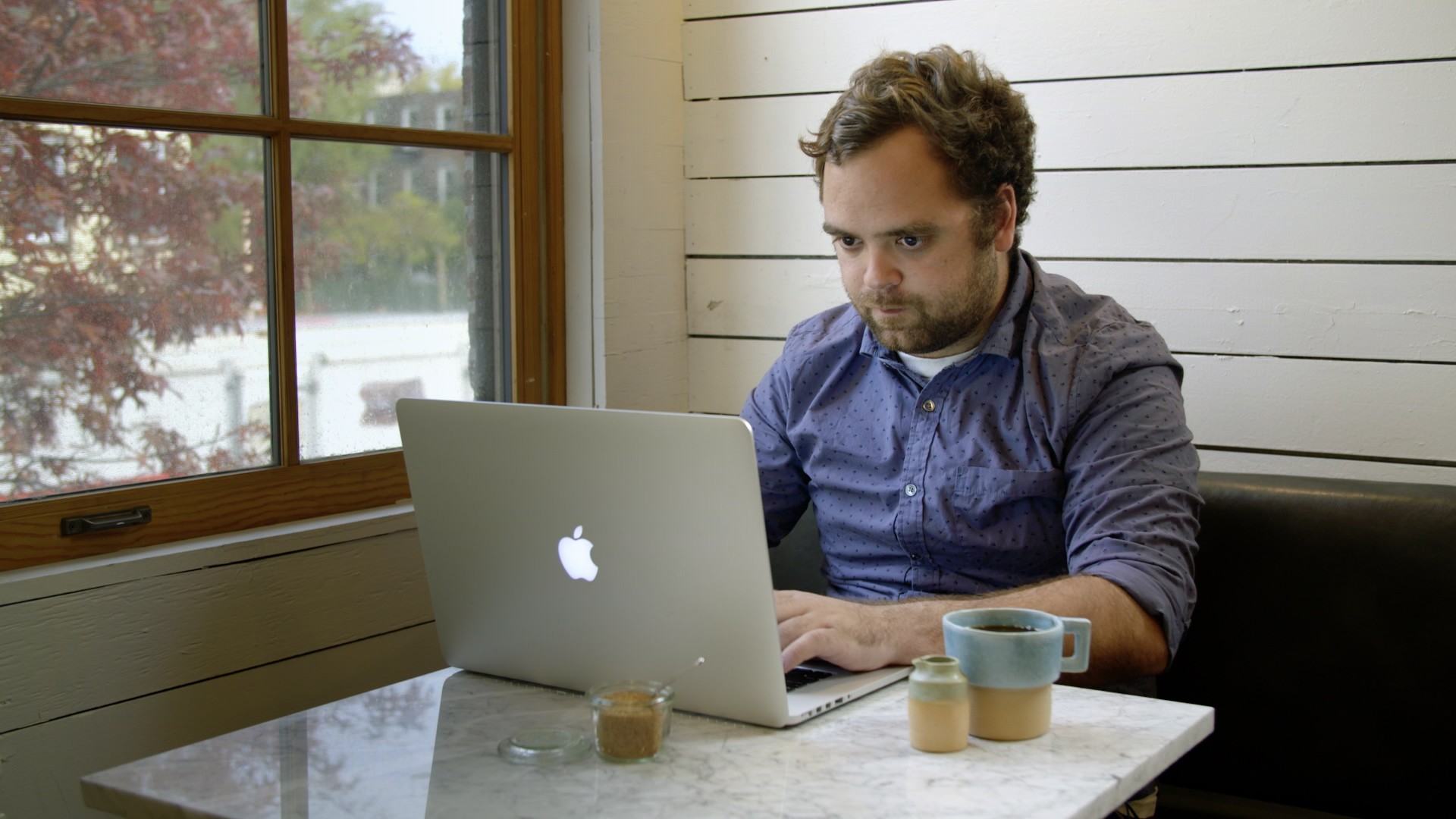Glory, glory, hallelujah. The cavalry at Google and Facebook are coming to Canada to save us from the scourge of Fake News™. No longer will teenagers making stuff up at random pull in six figures of annual ad revenue from people convinced that Justin Trudeau is going to personally murder the firstborn child of every oil worker or that avocados are cancer-curing crystal fruits bequeathed to us by Atlantean supermen. The future has never been brighter for a G7 nation whose body politic is apparently made up of adult voters lacking basic critical brain function.OK, I'm being a little harsh. This is good news. The reformation in media production and consumption has thrown everyone off their game, and lately the internet feels more like the European Wars of Religion than Thomas Friedman's flat earth. The stakes are pretty high. US President Donald Trump seems to have fallen pretty far down the Infowars rabbit hole and has now taken the executive branch of the American state with him.Canada's not immune, either. The Rebel, a hyper-partisan media outrage machine founded by Ezra Levant, has been more than willing to blow out of context statistics into hilariously inflammatory claims. Likewise, Nick Kouvalis, manager for the Kellie Leitch campaign, has gleefully spread misinformation about the Trudeau government with the sole intention of trolling leftists. Even the CBC hasn't been immune from irresponsible social experiments like having a guy trying to sell racist t-shirts to randos on the street.The blurring of the line between true and false, fact and fiction, responsible provocation and shameless exploitation is a legitimate concern for anyone who seriously believes democracy requires good journalism to function. And since democracy is something the Canadian government at least pretends to care about, they've always kept a couple fingers in the telecommunications pie. All in the public interest, of course. Upon returning from an economic summit in Davos, Heritage Minister Melanie Joly told La Presse she was "concerned" about the fake news phenomenon and would be talking to Facebook and Google about what they can do about it. (No need to get cynical about it being the governing Liberals who are concerned about it, right?)Given that increasing numbers of people get their information through social media, it makes sense that those companies should at least take some responsibility in weeding out deliberately false, misleading, or otherwise malicious posts masquerading as reputable news. A major part of the pitch Facebook and Google make to advertisers is their algorithms' abilities to subtly curate information and influence users, so it seems straightforward that great thinkfluencing power should come with great responsibility.But Facebook and Google are for-profit corporations, not public utilities—even if they are the mediums through which we are increasingly compelled to live and work. It's not like the Canadian government is about to nationalize the internet, so what they could actually do beyond politely reminding Google to obey the honour system is anybody's guess. The state could always just get outright involved in the business of policing media content, but good luck selling that one to a constituency already upset that CBC has a website.There's always the possibility that the free press might try to police itself by bringing in some fact-checking mechanisms to weed out obvious lies or untruths. French newspaper Le Monde has rolled out a suite of programs and browser plug-ins known as the Décodex with the aim of helping French users flag which news sources are more or less reputable. While legacy media also obviously has some skin in the game, self-regulation is less offensive to most liberal sensibilities than the state apparatus telling you what news you should or shouldn't consume.Beyond all this, there is a more basic problem at play. Where do you draw the line on 'fake news' after outright falsehoods have been eliminated? Is ideological bias alone enough to get an outlet blacklisted? What about citizen media outfits? Will media organizations running editorials slanted towards "centrism"—ie. mushy progressive-flavoured neoliberal technocracy—be similarly flagged?Read More: Watch Fake News Become a Meaningless PhraseThe federal heritage committee is currently chewing on a report about the future of media and journalism in Canada, and the problem of 'fake news' has been brought up a few times. They're set to report to Parliament in the spring.In the meantime, it bears repeating again that democracy is important and also fairly fucking complicated to run properly. Or, at least, smoothly enough that it doesn't degenerate into a tyrannical mob baying for the blood of the Other. Enlightenment values are old-fashioned these days but I still like to believe that responsible self-government is a pretty good personal goal, despite all the barriers the universe and our own unconscious throws up in the way. It is not hard to take 30 seconds to think about what you see on the internet. Here is a cheat sheet. Assuming you want something better for your life than an endless wave of fad diets and fad prime ministers and fad waves of brutal, grinding racist populism, never stop learning how to fucking read.Follow Drew Brown on Twitter
Upon returning from an economic summit in Davos, Heritage Minister Melanie Joly told La Presse she was "concerned" about the fake news phenomenon and would be talking to Facebook and Google about what they can do about it. (No need to get cynical about it being the governing Liberals who are concerned about it, right?)Given that increasing numbers of people get their information through social media, it makes sense that those companies should at least take some responsibility in weeding out deliberately false, misleading, or otherwise malicious posts masquerading as reputable news. A major part of the pitch Facebook and Google make to advertisers is their algorithms' abilities to subtly curate information and influence users, so it seems straightforward that great thinkfluencing power should come with great responsibility.But Facebook and Google are for-profit corporations, not public utilities—even if they are the mediums through which we are increasingly compelled to live and work. It's not like the Canadian government is about to nationalize the internet, so what they could actually do beyond politely reminding Google to obey the honour system is anybody's guess. The state could always just get outright involved in the business of policing media content, but good luck selling that one to a constituency already upset that CBC has a website.There's always the possibility that the free press might try to police itself by bringing in some fact-checking mechanisms to weed out obvious lies or untruths. French newspaper Le Monde has rolled out a suite of programs and browser plug-ins known as the Décodex with the aim of helping French users flag which news sources are more or less reputable. While legacy media also obviously has some skin in the game, self-regulation is less offensive to most liberal sensibilities than the state apparatus telling you what news you should or shouldn't consume.Beyond all this, there is a more basic problem at play. Where do you draw the line on 'fake news' after outright falsehoods have been eliminated? Is ideological bias alone enough to get an outlet blacklisted? What about citizen media outfits? Will media organizations running editorials slanted towards "centrism"—ie. mushy progressive-flavoured neoliberal technocracy—be similarly flagged?Read More: Watch Fake News Become a Meaningless PhraseThe federal heritage committee is currently chewing on a report about the future of media and journalism in Canada, and the problem of 'fake news' has been brought up a few times. They're set to report to Parliament in the spring.In the meantime, it bears repeating again that democracy is important and also fairly fucking complicated to run properly. Or, at least, smoothly enough that it doesn't degenerate into a tyrannical mob baying for the blood of the Other. Enlightenment values are old-fashioned these days but I still like to believe that responsible self-government is a pretty good personal goal, despite all the barriers the universe and our own unconscious throws up in the way. It is not hard to take 30 seconds to think about what you see on the internet. Here is a cheat sheet. Assuming you want something better for your life than an endless wave of fad diets and fad prime ministers and fad waves of brutal, grinding racist populism, never stop learning how to fucking read.Follow Drew Brown on Twitter
Advertisement

Advertisement
Advertisement
